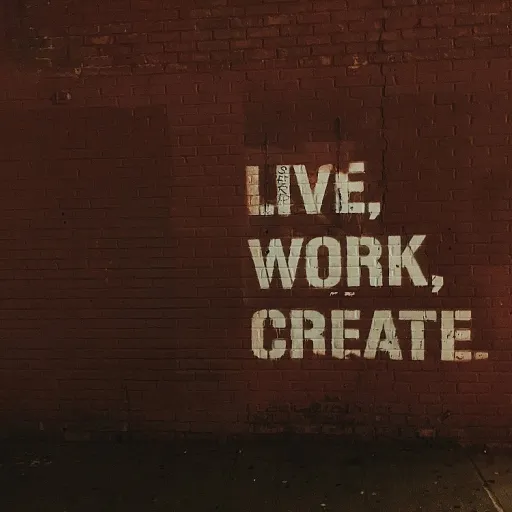
Understanding the skills gap in today’s job market
Why the skills gap matters for job seekers and employers
The skills gap is a growing concern in today’s job market. Many companies struggle to find candidates who match the requirements listed in their job descriptions. At the same time, job seekers often feel frustrated when their experience and qualifications do not align with what employers are seeking. This disconnect can slow down the hiring process and make it harder for both sides to find a good fit.
For employers, the skills gap means open positions remain unfilled for longer periods, which can impact productivity and company growth. Hiring managers and recruiters are under pressure to identify candidates who not only have the right technical skills but also fit the company culture. On the other hand, candidates may have relevant work experience but lack specific skills or certifications needed for a particular position.
How the skills gap shows up in the interview process
During the interview process, especially in pre screening interviews, hiring managers use screening questions to quickly assess whether a candidate’s skills match the job requirements. These interviews, which can be conducted over the phone or online, help companies filter out applicants who may not be the best fit for the role. Candidates will often face questions about their previous experience, technical abilities, and how they handle real work situations.
Screening interviews are not just about checking boxes. They allow employers to dig deeper into a candidate’s potential and see if there are areas where additional training or support might be needed. For job seekers, understanding the types of questions interviewers ask can help them better prepare and showcase their strengths.
- Employers use pre screening interviews to quickly identify skills gaps before moving forward in the hiring process.
- Candidates can use these interviews to highlight transferable skills and demonstrate their willingness to learn.
- The right screening questions help both sides determine if the candidate is a good fit for the company and the position.
As the demand for specialized skills continues to rise, bridging the skills gap has become a top priority for organizations across industries. For more insights on how companies are addressing this challenge, check out this resource on bridging the skills gap in technical domains.
The role of pre screening interviews in identifying skills gaps
Why screening interviews matter in the hiring process
Screening interviews, especially the pre screening stage, have become a crucial step for companies aiming to find the best candidates for a job. These interviews help hiring managers quickly assess if a candidate’s skills and experience align with the job description. By asking targeted screening questions, employers can identify potential skills gaps early in the interview process, saving time for both the company and the candidate.
How pre screening interviews reveal skills gaps
During a phone screen or initial interview, hiring managers focus on the core requirements of the position. They use specific interview questions to evaluate if candidates will be a good fit for the company culture and the role. For example, questions about previous work experience, technical skills, and problem-solving abilities help screen interviewees for the competencies needed to succeed in the job.
- Assessing technical acumen: Screening interviews often include questions that test a candidate’s technical knowledge, which is essential for roles in IT, engineering, and other specialized fields. For more on this, see building technical acumen to bridge the skills gap.
- Evaluating soft skills: Communication, teamwork, and adaptability are also assessed through scenario-based questions. These skills are increasingly important as companies look for well-rounded employees.
- Understanding career motivations: Interview pre screening questions often explore why a candidate wants the job and how it fits into their career goals. This helps determine if the candidate is likely to stay and grow with the company.
The role of hiring managers in identifying gaps
Hiring managers play a key role in the screening interview process. They compare candidate answers to the job requirements and company needs, identifying where skills are lacking. This information is used to decide who moves forward in the hiring process and to tailor future interview questions. By systematically screening candidates, companies can address skills shortages and improve their overall hiring strategy.
Key questions to ask during a pre screening interview
Essential screening questions for uncovering skills gaps
A pre screening interview is a crucial step in the hiring process, helping both employers and candidates determine if there is a good fit between the job requirements and the candidate’s experience. During a phone screen or initial interview, hiring managers use targeted screening questions to quickly assess whether candidates possess the skills needed for the position and to identify any potential gaps. Some of the most effective interview questions focus on practical experience, technical abilities, and alignment with the company culture. For example, hiring managers might ask candidates to describe a time they solved a problem similar to one they would face in the new role. This helps reveal not just technical skills, but also how a candidate approaches challenges at work. Other common screening interview questions include:- Can you walk me through your experience related to this job description?
- What specific skills have you developed that will help you succeed in this position?
- How do you stay updated with changes in your field or industry?
- Can you give an example of a project where you had to learn a new skill quickly?
- What do you know about our company and why do you think you’re a good fit?
How employers use pre screening interviews to address skills shortages
How companies use screening interviews to target skills shortages
Screening interviews, especially at the pre stage, are a practical tool for employers to address skills shortages in the hiring process. When a company faces a gap between the skills needed for a position and the abilities of available candidates, the interview process becomes more than just a filter—it’s a way to actively seek out the best fit for the job and company culture. Hiring managers and recruiters use phone screens and pre screening interviews to:- Quickly assess if a candidate’s experience matches the job description
- Identify specific skills that are missing or underdeveloped
- Ask targeted screening questions to evaluate technical and soft skills
- Gauge how well a candidate’s values align with company culture
- Compare candidates’ skills side by side early in the hiring process
- Spot trends in skills shortages across multiple applicants
- Adjust the job description or training programs based on real candidate data
Tips for candidates to prepare for a pre screening interview
Getting Ready for Your Screening Interview
Preparing for a pre screening interview is a crucial step in the hiring process. This early stage helps both candidates and hiring managers determine if there is a good fit between the candidate’s skills and the job description. Here are some practical tips to help candidates stand out during screening interviews:- Research the company and position: Understand the company culture, values, and the specific requirements of the job. This will help you tailor your answers and show genuine interest in the role.
- Review the job description: Identify the key skills and experience required. Be ready to discuss how your background matches these needs, using concrete examples from your previous work.
- Practice common screening questions: Prepare for typical interview questions interviewers might ask, such as your strengths, weaknesses, and relevant experience. Practicing your answers will help you communicate clearly and confidently.
- Highlight transferable skills: If you don’t have direct experience, focus on skills that can be applied to the new role. Emphasize your ability to learn quickly and adapt to new environments.
- Prepare questions for the interviewer: Asking thoughtful questions about the company, team, or position shows your interest and helps you assess if the job is the right fit for your career goals.
- Test your technology: For a phone interview or video screen interview, make sure your equipment works properly and you have a quiet space for the conversation.
Demonstrating Your Value During the Interview Process
During the pre screening interview, candidates will have the opportunity to show how their skills align with the company’s needs. Be honest about your experience and areas where you are still developing. Hiring managers appreciate candidates who are self-aware and proactive about learning. Remember, the goal of screening interviews is not only to assess your fit for the job, but also to help you find a position where you can grow and contribute effectively. By preparing thoroughly and approaching the interview with confidence, candidates can make a strong impression and increase their chances of moving forward in the hiring process.The impact of pre screening interviews on closing the skills gap
Measuring the Real Impact of Pre Screening Interviews
Pre screening interviews have become a crucial part of the hiring process for many companies. By using targeted screening questions, employers can quickly identify whether a candidate’s skills and experience align with the job description. This early stage in the interview process helps hiring managers focus on candidates who are a good fit for the position and company culture.Reducing Mismatches and Improving Hiring Outcomes
When companies use pre screening interviews effectively, they reduce the risk of hiring mismatches. Candidates who pass the phone screen or initial screening interview are more likely to possess the required skills and demonstrate the right attitude for the work environment. This means fewer resources are wasted on unsuitable candidates, and the hiring process becomes more efficient.- Better alignment between candidate skills and job requirements
- Faster identification of top talent through structured interview questions
- Improved candidate experience by setting clear expectations early












